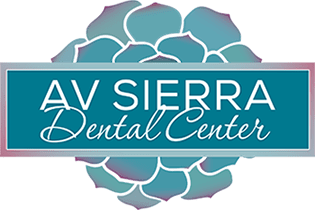
When you first met the love of your life, they referred to your nightly snoring as a barely noticeable purr. It was cute and endearing; they even said it was calming, like white noise — and you spent each night blissfully cuddling.
The honeymoon is long over, and now you spend more of your nights sleeping alone than you did when you were single. Your children and relatives are keeping the earplug industry afloat, and no one ever feels completely well rested. It’s safe to say your snoring is a problem that requires an immediate fix.
In some cases, snoring issues can be easily resolved without medical intervention. The following are some natural snoring treatments you can try at home.
- Change your sleep position: Sleeping on your side will keep your tongue and soft palate from collapsing back into your throat, which causes the vibrating sound that is the hallmark of snoring.
- Drop extra pounds: Weight gain can lead to snoring. Dropping the added pounds can alleviate the problem.
- Drink up: When you become dehydrated, your nose and soft palate become sticky and dry. Try to drink 11 to 16 cups of water a day and stay hydrated.
- Open your nasal passages: When your nasal passages become narrow because of congestion caused by a cold or other blockage, snoring can occur. Using a neti pot filled with noniodized salt and warm water to rinse each passage can help, along with taking a hot shower before bedtime.
When Natural Remedies Don’t Stop Snoring
If exhausting your natural snoring treatment options doesn’t provide relief, it is a good idea to get evaluated for sleep apnea.
What Is Sleep Apnea?
Sleep apnea is a potentially debilitating condition characterized by shallow or infrequent breathing during sleep. Sleep apnea occurs when the muscles supporting the soft palate relax, allowing the airway to narrow and close as you breathe in. It causes sufferers to snore loudly, choke, and gasp during sleep, leaving them (and those closest to them) feeling exhausted during the day. Conditions that have been linked to sleep apnea include high blood pressure, cardiovascular disease, and impaired concentration.
Sleep Apnea Symptoms
Along with complaints from those closest to you, the following are sleep apnea symptoms to be aware of:
- Difficulty staying asleep
- Waking frequently with the need to urinate
- Feeling fatigued throughout the day
- Weight gain
- Attention problems
- Waking up with a dry mouth or sore throat
- Morning headaches
- Depression
Sleep Apnea-Related Snoring Treatments
There are several anti-snoring devices that are used to alleviate snoring caused by sleep apnea.
CPAP (continuous positive airway pressure): The CPAP device is the gold standard for treatment of mild to severe sleep apnea. While it is largely successful at alleviating suffering, it is large and cumbersome, and the required tubing and mask can be difficult to sleep with.
Removable oral sleep apnea devices: Fortunately, there is a snoring mouthpiece that many dental providers who specialize in sleep apnea can customize for patients. This removable, oral sleep apnea treatment allows for normal mouth opening and closing, as well as normal airflow, giving you immediate relief from sleep apnea symptoms. Treatment is far less invasive and is ideal for patients who can’t tolerate the CPAP or who suffer from mild sleep apnea. Oral appliances are easy to use and require little to no change in your lifestyle.
If you think you may be suffering from sleep apnea, or if you have been diagnosed and aren’t satisfied with the treatments you’ve tried, call us today at 661.202.3542 to find out more about our sleep apnea solutions and how we can put an end to your family’s fatigue.
